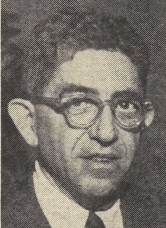A Quote by Ernest Nagel
It is the desire for explanations that are at once systematic and controllable by factual evidence that generates science; and it is the organization and classification of knowledge on the basis of explanatory principles that is the distinctive goal of the sciences.
Related Quotes
In evolution, as in all areas of science, our knowledge is incomplete. But the entire success of the scientific enterprise has depended on an insistence that these gaps be filled by natural explanations, logically derived from confirmable evidence. Because "intelligent design" theories are based on supernatural explanations, they can have nothing to do with science.
For this knowledge of right living, we have sought a new name... . As theology is the science of religious life, and biology the science of [physical] life ... so let Oekology be henceforth the science of [our] normal lives ... the worthiest of all the applied sciences which teaches the principles on which to found... healthy... and happy life.
A … difference between most system-building in the social sciences and systems of thought and classification of the natural sciences is to be seen in their evolution. In the natural sciences both theories and descriptive systems grow by adaptation to the increasing knowledge and experience of the scientists. In the social sciences, systems often issue fully formed from the mind of one man. Then they may be much discussed if they attract attention, but progressive adaptive modification as a result of the concerted efforts of great numbers of men is rare.
Please don't make the mistake of thinking that the arts and sciences are at odds with one another. That is a recent, stupid and damaging idea. You don't have to be unscientific to make beautiful art or to write beautiful things... science is not a body of knowledge or a belief system, it is just a term that describes humankind's incremental acquisition of understanding through observation. Science is awesome. The arts and sciences need to work together to improve how knowledge is communicated.
Knowledge signifies things known. Where there are no things known, there is no knowledge. Where there are no things to be known, there can be no knowledge. We have observed that every science, that is, every branch of knowledge, is compounded of certain facts, of which our sensations furnish the evidence. Where no such evidence is supplied, we are without data; we are without first premises; and when, without these, we attempt to build up a science, we do as those who raise edifices without foundations. And what do such builders construct? Castles in the air.
Science ignores the spiritual realm because it is not amenable to scientific analysis. As importantly, the predictive success of Newtonian theory, emphasizing the primacy of a physical Universe, made the existence of spirit and God an extraneous hypothesis that offered no explanatory principles needed by science.
The classification of facts and the formation of absolute judgments upon the basis of this classification-judgments independent of the idiosyncrasies of the individual mind-essentially sum up the aim and method of modern science. The scientific man has above all things to strive at self-elimination in his judgments, to provide an argument which is as true for each individual mind as for his own.
We profess to teach the principles and practice of medicine, or, in other words, the science and art of medicine. Science is knowledge reduced to principles; art is knowledge reduced to practice. The knowing and doing, however, are distinct. ... Your knowledge, therefore, is useless unless you cultivate the art of healing. Unfortunately, the scientific man very often has the least amount of art, and he is totally unsuccessful in practice; and, on the other hand, there may be much art based on an infinitesimal amount of knowledge, and yet it is sufficient to make its cultivator eminent.








































